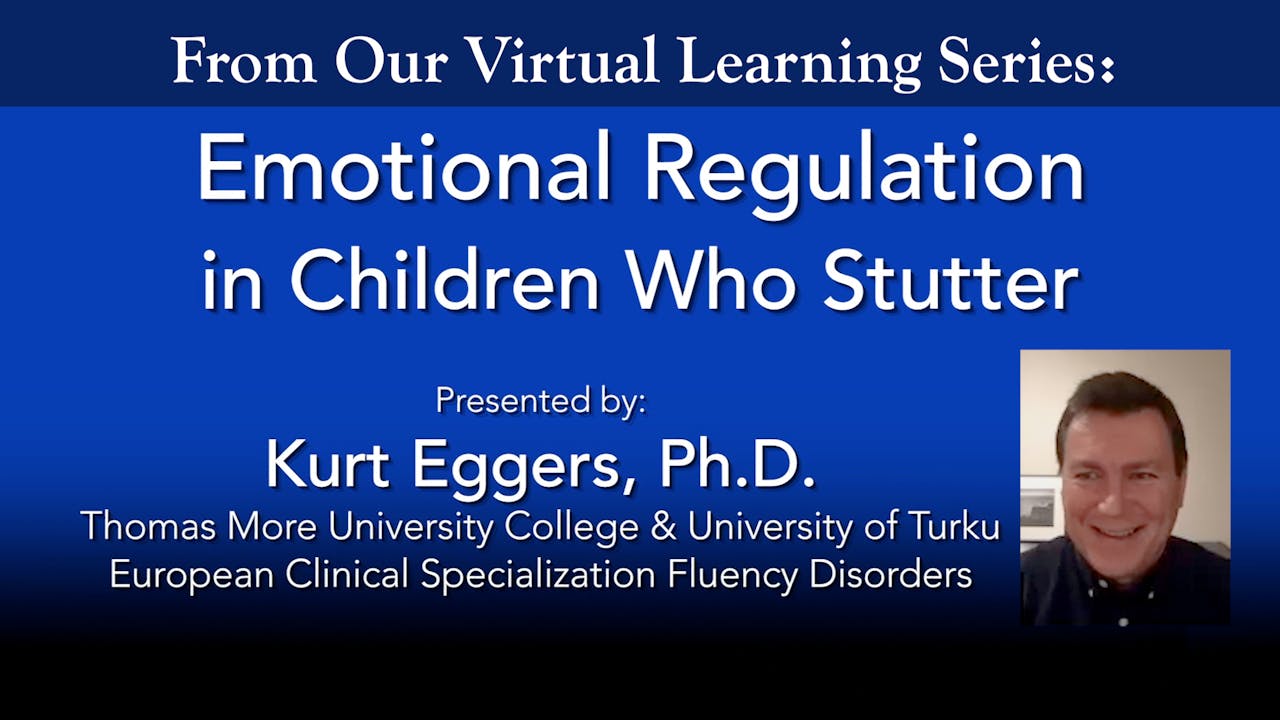Emotional Regulation in Children Who Stutter
Description: Temperament refers to individual differences in emotional reactivity (e.g., getting excited, getting frustrated) and self-regulation (e.g., suppressing inappropriate responses, shifting attentional focus). Several studies in this domain have demonstrated that a substantial group of children who stutter are more emotionally reactive and/or have lower emotion/attention regulation skills compared to children who do not stutter. Not only does this play a role in the exacerbation of stuttering, but according to a recent study it is also related to the impact that stuttering has on day-to-day functioning. During this lecture we will discuss the relevant literature and provide several tools and strategies for how clinicians and parents can contribute to improving children’s emotional regulation.
• Target Audience: Speech-Language Pathologists*, Parents
Bio: Kurt Eggers is chair of the European Clinical Specialization in Fluency Disorders (www.ecsf.eu), IFA President Elect, and IALP fluency committee member. He is also associate editor for Journal of Fluency Disorders. Kurt has worked clinically for many years, has lectured/published internationally and his research focuses on the role of temperament, attention, and executive functioning in stuttering and speech disfluencies in different populations.
-
Eggers Emotional Regulation Webinar_Approved

